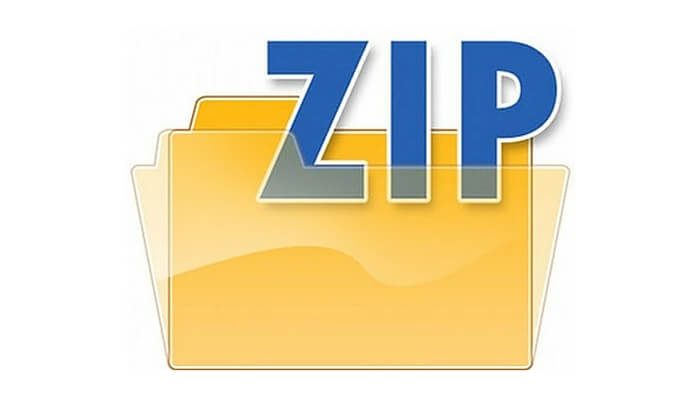Analysis of Binary XML Suitability for NATO Tactical Messaging (English Edition) [Kindle-editie] beoordelingen het boek quotes
van Matthew E. Bayer
Analysis of Binary XML Suitability for NATO Tactical Messaging (English Edition) [Kindle-editie]
The ability to efficiently transfer information among tactical systems is essential for network-centric operations. However, maintaining interoperability among heterogeneous networks and applications is a challenging issue, especially for large enterprises such as the US Department of Defense and NATO. Each of these organizations maintain extensive communication networks of tactical systems that process and manage all types of data. Additional complexity is added when considering that many systems are built with a variety of proprietary or legacy data formats. Establishing and maintaining interoperability is difficult. Using XML, many interoperability issues can now be successfully addressed. XML provides a self-describing way to effectively structure information that can be applied to compose diverse tactical communications. However, XML is inefficient for network transmission since it uses a text-based format which can consume more memory (and thus more bandwidth) than binary equivalents. In addition, parsing text-based documents is slow and computationally expensive. One potential solution is to use GZIP to reduce the file size before transmission. Unfortunately, this solution has limitations since it often provides suboptimal compression and also requires additional processing time when extracting data. Recent standardization efforts have identified promising new encodings for XML that use binary representations to reduce parsing time, memory size, and bandwidth requirements. This thesis surveys conversion of NATO tactical data link information into an XML format for distribution to command and control centers. General benefits and tradeoffs are then considered for applying binary XML encoding to that data. This thesis also examines work done by the World Wide Web Consortium in examining common use cases and developing the requirements needed for a binary XML encoding. The performance of two specific implementations, XML Schema based Binary Compression (XSBC) and Fast Infoset (FI), are compared with GZIP. XML files of varying sizes are encoded in binary form, then compression ratios and parsing times are compared and analyzed. Initial results are excellent and further work is recommended.
Populaire auteurs
Cram101 Textbook Reviews (948) J.S. Bach (447) Wolfgang Amadeus Mozart (306) Collectif (268) Schrijf als eerste een recensie over dit item (265) Doug Gelbert (238) Charles Dickens (222) Princess of Patterns (211) Jules Verne (199) R.B. Grimm (197) William Shakespeare (190) Anonymous (188) Carolyn Keene (187) Gilad Soffer (187) Mark Twain (187) Philipp Winterberg (181) Edgar Allan Poe (173) Youscribe (172) Lucas Nicolato (170) Herman Melville (169)Populaire gewichtsboeken
418 KB 425 KB 435 KB 459 KB 474 KB 386 KB 445 KB 439 KB 455 KB 413 KB 432 KB 421 KB 471 KB 493 KB 472 KB 485 KB 416 KB 451 KB 369 KB 427 KB![Analysis of Binary XML Suitability for NATO Tactical Messaging (English Edition) [Kindle-editie] beoordelingen Analysis of Binary XML Suitability for NATO Tactical Messaging (English Edition) [Kindle-editie] beoordelingen](/img/no-book.jpg)



![The Ecology of Large Mammals in Central Yellowstone: Sixteen Years of Integrated Field Studies (Terrestrial Ecology) [Print Replica] [Kindle-editie]](http://files-castle.com.website.yandexcloud.net/books/47637d5709655a3ac1e00bdbe0023501.jpg)
![American Society: Toward a Theory of Societal Community (The Yale Cultural Sociology Series) [Kindle-editie]](http://files-castle.com.website.yandexcloud.net/books/e656a5ba9beb4980466199f84caa5dc5.jpg)
![An Introduction to the New Testament (The Anchor Yale Bible Reference Library) [Kindle-editie]](http://files-castle.com.website.yandexcloud.net/books/11998361cce2d09b8f5e2d7841aeaf44.jpg)
![The Excavations at Dura-Europos conducted by Yale University and the French Academy of Inscriptions and Letters 1928 to 1937. Final Report VII: The Arms and Armour and other Military Equipment [Kindle-editie]](http://files-castle.com.website.yandexcloud.net/books/b083dbd834371c72fe29483e7fb7a741.jpg)
![Tennyson: A Selected Edition (Longman Annotated English Poets) [Kindle-editie]](http://files-castle.com.website.yandexcloud.net/books/e2d6c6325809631ee40b4c459480131e.jpg)
![Promotional Cultures: The Rise and Spread of Advertising, Public Relations, Marketing and Branding [Kindle-editie]](http://files-castle.com.website.yandexcloud.net/books/2d9f275960c00bed2f2cd3577d4d91dc.jpg)
![Introduction to Time Series Modeling (Chapman & Hall/CRC Monographs on Statistics & Applied Probability) [Print Replica] [Kindle-editie]](http://files-castle.com.website.yandexcloud.net/books/5504443576ef4910627142ec4baea5e0.jpg)
![Robustness in Statistics [Print Replica] [Kindle-editie]](http://files-castle.com.website.yandexcloud.net/books/a0ac649051827c7368c591c5977b005a.jpg)
![Advances in Growth Curve Models: Topics from the Indian Statistical Institute: 46 (Springer Proceedings in Mathematics & Statistics) [Kindle-editie]](http://files-castle.com.website.yandexcloud.net/books/189ec8f2d5ef82f57216fa4d73a5e342.jpg)
![Progress in Partial Differential Equations: Asymptotic Profiles, Regularity and Well-Posedness (Springer Proceedings in Mathematics & Statistics) [Print Replica] [Kindle-editie]](http://files-castle.com.website.yandexcloud.net/books/b31afae00ab76fa3dbc8be90c6334c55.jpg)
![Bayesian Filtering and Smoothing (Institute of Mathematical Statistics Textbooks, 3) [Kindle-editie]](http://files-castle.com.website.yandexcloud.net/books/52c7a1fdcb0f73cd5f1f666f9fdca85e.jpg)
![Forecasting with Exponential Smoothing: The State Space Approach (Springer Series in Statistics) [Print Replica] [Kindle-editie]](http://files-castle.com.website.yandexcloud.net/books/6201219f8a52cb1e3fd4a3ba055439fc.jpg)
![Decision Support System for Management of Military Constructions (English Edition) [Kindle-editie]](http://files-castle.com.website.yandexcloud.net/books/0f542bb698bafdd10430162e54c4211f.jpg)
![The Soul Summoner (The Soul Summoner Series Book 1) (English Edition) [Kindle-editie]](http://files-castle.com.website.yandexcloud.net/books/2111c646cd17d927e635030c5d059702.jpg)
![Trio in C Major Op. 3, No. 2 (Score) [Kindle-editie]](http://files-castle.com.website.yandexcloud.net/books/d417b6606c8be5a9e02e7d530db525a3.jpg)
![Fair Pay, Fair Play: Aligning Executive Performance and Pay [Kindle-editie]](http://files-castle.com.website.yandexcloud.net/books/86e27abc7926fb7e5a1f304adb3770e7.jpg)